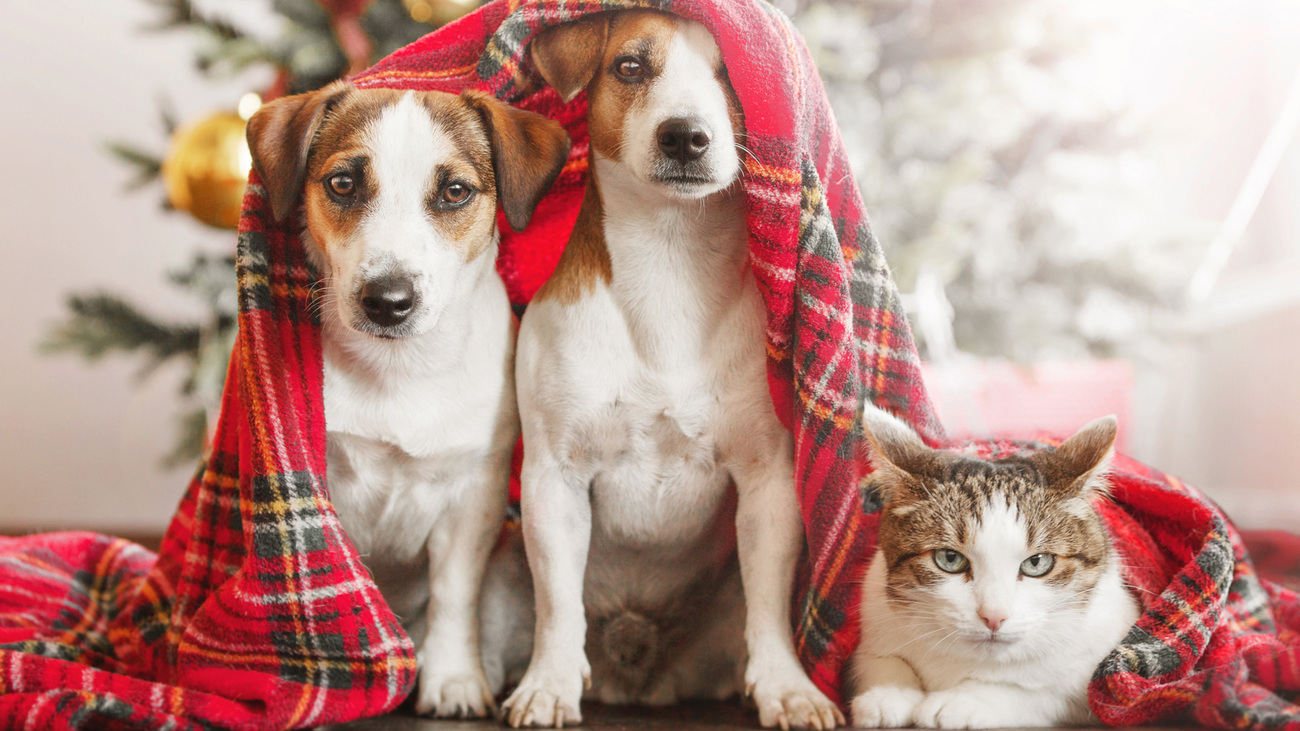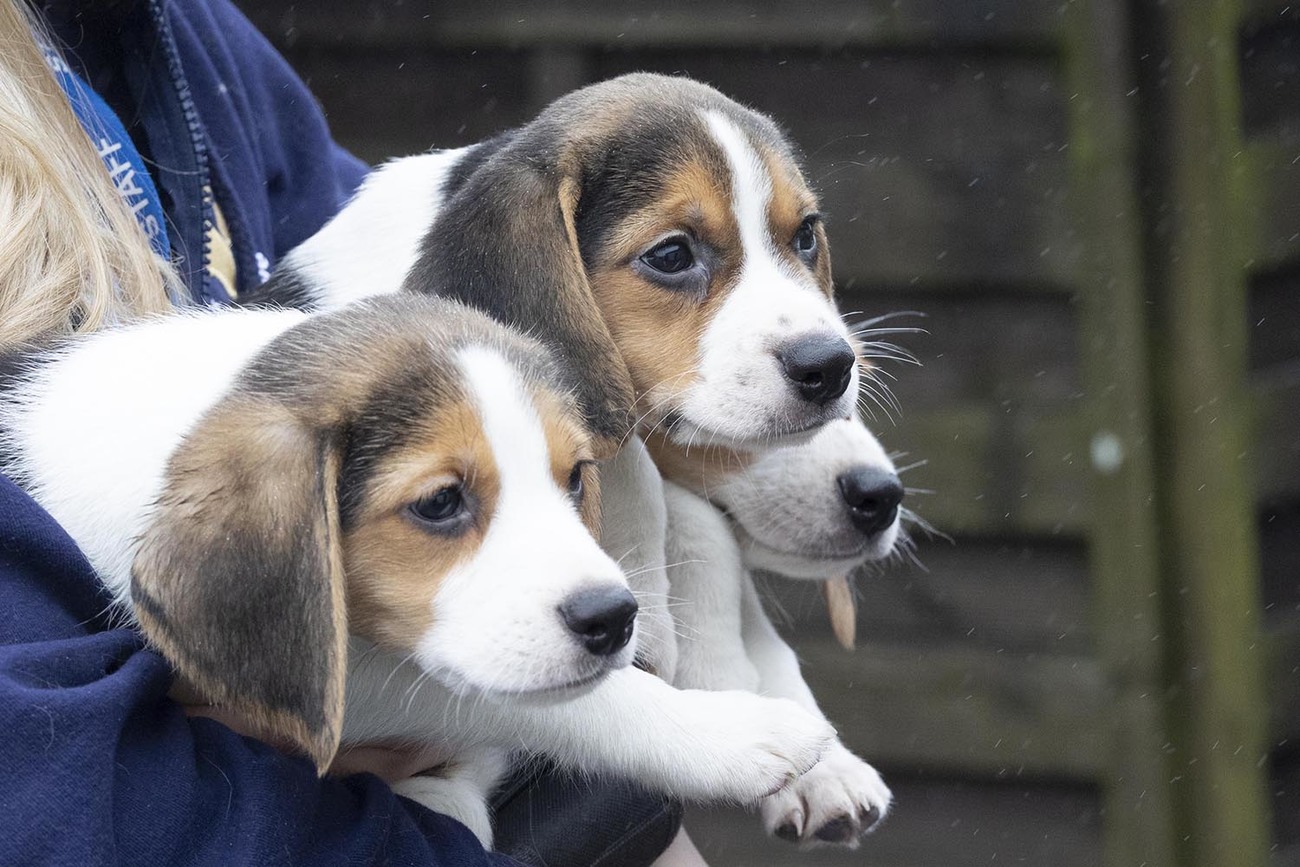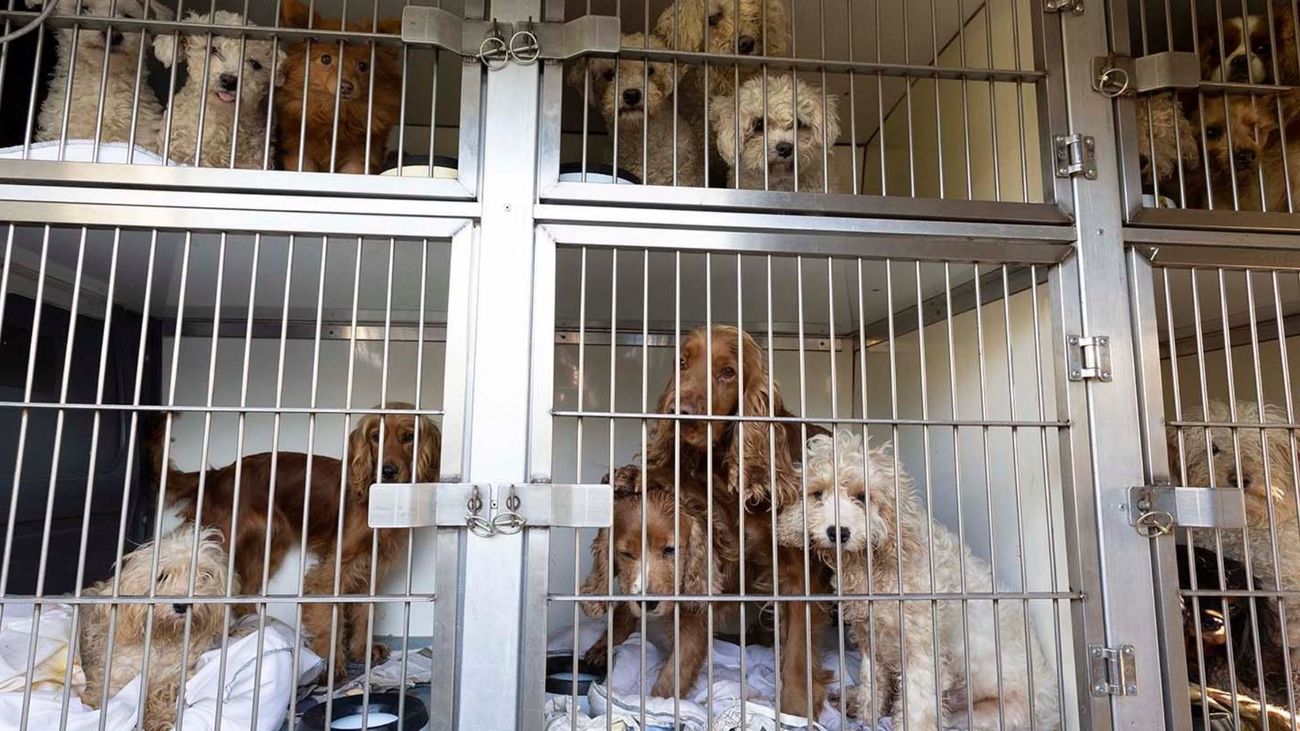Updates
How IFAW has helped animals and people during the Ukraine crisis
Learn moreChristmas is a time for giving—but think hard before giving pets as presents

Christmas in the UK is traditionally a time for families to come together. This year’s is predicted to be bigger than ever, fuelled by lockdown saving and a desire to make up for a miserable event last year when friends and family lost the ability to see each other last minute. The UK is also a great nation of animal lovers and every year many people think about adding to their families by bringing a pet into the home.
Often enticed by cute pictures of puppies or kittens or the pester power of the little people in their lives, the idea of surprising a partner or children with a pet in the run-up to the festive season or even on the day itself can be tempting for many. The reality, however, can be a minefield of unhappiness and emotional strain that affects families but ultimately ends in a bad outcome for the animal. Every year animal charities run campaigns to remind people of the level of commitment required and to try to stem the inevitable flow of abandoned animals the following year. Despite this, many people pay little heed and experience the heartache of handing an animal over to a shelter, and the animal faces abandonment and often euthanasia.
This year, rather than recycle the same messages, we wanted to offer prospective pet owners, especially those entering into this world for the first time, some thoughts and advice to help make the right choices around pet ownership.

Pets are a commitment. Often people don’t realise how big a commitment they really are. They impact on every aspect of your life, from how you can travel to how much money they cost. Entering into this commitment without adequate research and preparation increases the chance of a bad outcome for you and critically for the animal’s welfare. It is important, especially as a first-time owner of an animal, to do your research and make sure the species and the breed match your lifestyle, or that you are willing to adapt your lifestyle accordingly. Animals rarely just fit in and they shouldn’t be discarded when they don’t.
Pets are not toys and they are not inanimate objects. They think and feel (the scientific word is sentience) emotions and pain; even more simple organisms such as crustaceans are now being shown to be sentient. This means that they shouldn’t be treated as a present like a TV or a games machine and their care cannot be put in the hands of a child as animals' needs and routines are complex and beyond many young people’s capabilities.
Species themselves have specific care needs but they also have characteristics that may or may not suit your interests or lifestyle. Certain species have multiple breeds (such as cats and dogs) and each of these have characteristics, health conditions and behaviour to consider. Picking a dog which needs two hours or more of exercise a day to stay healthy, when you are so busy you cannot accommodate this isn’t just being unfair, it is neglect. I have seen countless examples of animals in poor health or struggling with weight conditions because owners don’t commit to meeting their health needs.
Young animals such as puppies and kittens are cute, they appeal greatly to us and especially to our children who will naturally want to play with them. Young animals, however, are just like human babies and they are often just as challenging at the start. I’ve lost count of the number of times owners have told me that they had no idea how hard the first couple of months of owning a puppy is and how they were often close to giving up and taking it to a shelter. Expect many sleepless nights, expect animals to need sleep when you might want to play with them, expect that if you want them and you to live a happy life together they need a focus on training. If you can’t commit to all of that then step away, take a breath and think about whether you are really ready for such a pet.

It is far easier now to buy the wrong animal, without careful thought and research, from the wrong people. The online trade in animals has exploded, fuelled by skyrocketing prices in lockdown. Illegal pet farming is a reality in the UK and the line between legal and illegal can be blurred. Animals that are bred in poor facilities can often arrive ill and need thousands of pounds of medical care (note pet insurance only covers certain things) and often animals with diseases such as parvovirus have to be put to sleep or die very quickly in a great deal of pain.
For those who are determined to buy a particular type of dog from a breeder, IFAW’s advice is to always research carefully to ensure you are not buying from an irresponsible breeder or puppy farm. Make sure you always see the pups with their mother, check they are old enough to be sold, have the correct papers and have been vaccinated.
There has been a surge in adopting animals from overseas including street dogs from Eastern Europe. This has largely been fuelled by the huge increase in the price of pets in the UK, driven by consumer demand during COVID lockdowns and the fact these animals can be adopted for a donation price of about 25% of that of a puppy in the UK. It is important to think carefully about this practice, especially as a new owner. These animals have grown up on the street or spent a lot of time in shelters in Eastern Europe.
Life on the street for such a dog is a hard one and the instinct to give them a better life is a good one. But when one considers that such an animal may have never been inside a modern house and its majority of interactions with humans have been abuse or neglect, then these animals have complex needs. Unless you have a strong commitment to training and a lot of patience, then these animals may not be for you. In the last year I have met many people who saw this as ‘their only option’ to get a dog and recounted stories of how the animal was proving extremely difficult to control. They were all first-time dog owners who simply couldn’t afford the breed they actually wanted.
People also turn to rescue centres and shelters. Again the motivation can be a good one and IFAW would always recommend it is better to rescue a shelter pet in need of a forever home. There are many animals out there who need a home and many who sadly end their lives in shelters, with many dogs currently in shelters being abandoned or returned ‘lockdown puppies’. During COVID many people who would not normally rescue have turned to shelters as an option but often without enough research or preparation. There are many common breeds that end up in shelters and some return several times because new owners cannot handle them.
Most reputable shelters will be very clear about the needs of animals and which lifestyles they aren’t suitable for, and prospective owners should heed this information and talk in-depth with the shelter about their suitability. As an example, a dog with resource hoarding issues is going to be more challenging with families and may be better suited to a household where there is another dog to teach them as part of the pack. A rescue dog can be a joy and you can make a huge difference to an animal’s life but if being abandoned once isn’t bad enough, then going back to the shelter a second time can be devastating and make the animal harder to rehome a second time.

It may sound like we are trying to put you off owning a pet. We aren’t. Owning a pet can fill your life with joy, they can become an indispensable part of the family and bring so much well-being to individuals. We simply ask that you enter into the idea of pet ownership seriously and with commitment. With the rise in internet searches around handing animals to shelters borne out of the post-COVID return to work and the challenges in pet care and its costs, the New Year could see a bumper rise in the number of abandonments.
Animals love us and depend on us for their care as pets in our homes. They are a responsibility and a commitment and they aren’t simply a gift for the good times. Responsible pet ownership is a joy but please don’t be one of the many owners I have mentioned who end up with a long-term sense of guilt for taking on an animal they subsequently had to let go; it traumatises animals and humans alike. Be one of those owners who loves having an animal in their family for a lifetime.
Our work can’t get done without you. Please give what you can to help animals thrive.
Unfortunately, the browser you use is outdated and does not allow you to display the site correctly. Please install any of the modern browsers, for example:
Google Chrome Firefox Safari